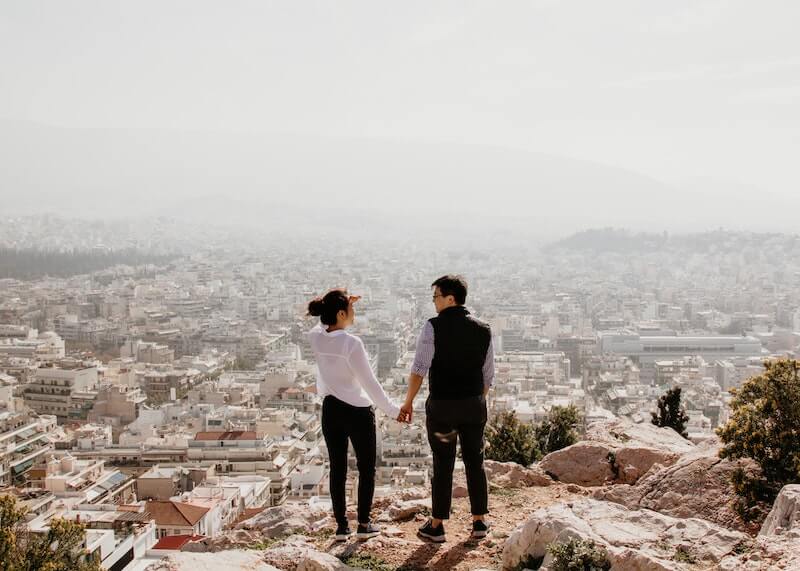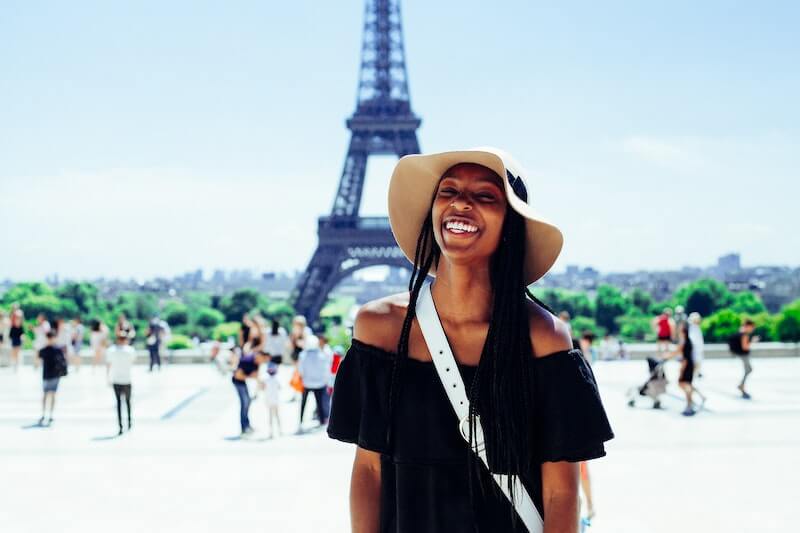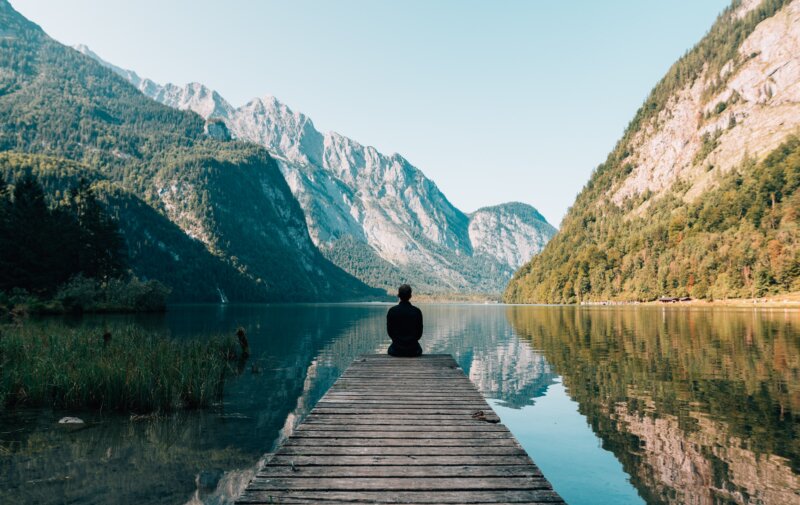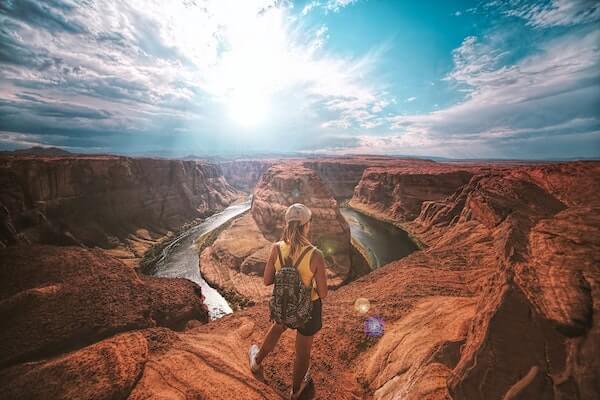Finding Yourself: How Travel Shapes Identity
Finding Ourselves: How Travel Shapes Identity
Karen Stein's book 'Getting Away From It All: Vacations & Identity' examines the ways travel facilitates the exploration and development of the self...
Though it's a well-worn cliché, people really do go traveling to “find themselves.” When we step out of our everyday environments and routines we undergo a temporary rearrangement of our identities — one that lets us imagine other possibilities for ourselves. We can escape our at-home personas and live unbound, or widen our perspectives and make big-picture plans for future iterations of us. We can mark the transition from one chapter of our lives — one version of ourselves — to another.
This week FTT spoke to Karen Stein, author of Getting Away From It All: Vacations & Identity — a book that evolved out of her graduate school dissertation. As a life-long traveler, Karen has always been fascinated by the way travel allows us to shift our identities, bringing some facets of ourselves to the forefront while pushing other facets to the back. We caught up over Zoom to discuss all the ways that geographical and internal exploration are interlinked, why Americans should use all their annual vacation days, and what our post-pandemic travel choices say about who we are now.

Esme Benjamin: We like to think of our identity as being fixed, but when you give it a lot of thought, it’s very much influenced by context: What space are you in, who is with you, and what are their expectations of how you should be? How does traveling with others impact the way we explore or perform our identity?
Karen Stein: We’re all made up of multiple identities and so the people we are around and the environments we’re in — those things contribute to whatever identity is having primacy in the moment. One of the people in my study was a mother who left her kids behind and she went on this international travel experience. She was able to shift those facets of her identity associated with being a parent to some extent, and bring forward other aspects of her identity that she couldn’t explore during her everyday life with her three young kids — the more adventurous parts of herself.
EB: Another thing you write about is this idea of a vacation being a moment of pause from our everyday lives. I’m interested in how we use that moment of pause to explore who we want to become. The conversations we have on vacation might be very different from the ones we have while enmeshed in our daily routines and responsibilities at home. We might reflect deeply on where we’re at and where we want to go rather than catching up on what happened at work that day, for example.
KS: We pause the day-to-day things that bind our experiences and that allows for other things to come in. You could use that time to do identity-building work in terms of thinking about your future self. When you’re traveling you have the flexibility to do that work which you might not be able to do when you’re stuck in your quotidien routine. Other people do the opposite and shut all of that out. For them it’s more about escapism rather than self-building.
EB: Why do you think travel is so well suited to self-building?
KS: You have more time but you are also in a different place, which can lead to a shift in perspective. Certain constraints are taken away and you can see things differently — especially if you have the ability to visit places that are very different from home, where people are living very different lifestyles to yours. It’s an opportunity to be exposed to different possibilities for yourself.

EB: On the Full-Time Travel podcast I like to ask people, “What’s the one thing everybody should experience in their lifetime?” The most popular response is solo travel. Could that be because we are unconstrained by other’s expectations of us? It’s easier to rebrand ourselves, so to speak, when nobody who knows us is watching.
KS: I’m a big proponent of solo travel, not only for that reason — that we can be someone else — but because it is so instrumental to discovering your own interests and ideas, and being able to fully act on them without other people constraining your choices. But in terms of having an audience for your behavior and a clean slate, traveling on your own allows you to cut those ties to the extent that you will allow yourself to do that. Part of my argument is that there are always things connecting us to our everyday lives, even if we don’t want there to be. Especially if we travel with a smartphone and laptop.
EB: Obviously the pandemic has derailed everybody’s travel plans for the past year. Do you have a hunch about what kind of identity-focused travel people will want to do when the world opens up again?
KS: I think it’s already splitting in two directions. There are the people who are immediately going to visit loved ones to strengthen those family identities that have languished this past year. Then there’s this segment of people who are just getting away — all the people going to Mexico or an island. Somewhere that’s a completely different environment, where they can take on that no-rules kind of vacation persona, which is very different from the family identity.

EB: So one is reaffirming your pre-pandemic self through the eyes of those who know you best, and the other is establishing a new version of you? This aligns with a recent interview I did with Sam Bruce from Much Better Adventures, who was saying people who hadn’t previously considered themselves outdoorsy or adventurous are now booking trips with a physical challenge — wild hiking and camping in Norway, for example.
KS: That makes sense. People are doing that in lots of ways and not just on their vacations. People don’t want to miss out on anything. They want to do all these things that perhaps they were denying themselves before.
EB: You make a point that a large number of Americans don’t use their vacation days each year. Could you elaborate on what these people might be missing out on? How do we benefit from travel as a temporary reorganization of the self?
KS: When we are working all the time it’s the prioritization of one identity over others. That’s not necessarily bad, especially if you like that identity, but for most people they have a range of identities that are important to them. Putting too much salience in one identity at the expense of others can lead to a more narrow experience. Perhaps they think they’ll do the other stuff when they retire, but that’s a lot of one’s life to devote to one identity while putting the others on the back burner. Though some Americans are workaholics, I think many would like to travel more and they’re afraid of what will happen if they step away.
EB: I like to say travel is a palate cleanser between life’s courses. We often travel when we are transitioning from one life chapter to another and it helps us refresh and enter a new phase of our identities. Does that make sense to you?
KS: It does make sense. A lot of people use travel when they’re leaving one big thing and moving to another. It goes back to what you were saying earlier about traveling to gain fresh perspective. Being physically and cognitively removed from your everyday social constraints and being in a new situation enables you to think more freely.


